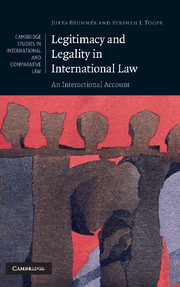Introduction
Published online by Cambridge University Press: 05 July 2013
Summary
On 15 February 2003, millions of people around the world marched in the streets of their towns and cities to protest the impending invasion of Iraq by a ‘coalition of the willing’ led by the government of the United States of America. Media reports conservatively estimated crowds of 750,000 in London, 600,000 in Madrid, 500,000 in Berlin, 150,000 in Melbourne, 100,000 in New York, and possibly over a million in Rome, where estimates varied wildly. Smaller, but vocal demonstrations were held in scores of cities around the world. When all the numbers are pulled together, this was probably one of the largest mass protests in human history.
The motivations behind individual decisions to protest were undoubtedly various, but underlying many decisions was a sense that the planned invasion broke the rules of international law. In a contemporaneous address, Pope John Paul II invoked the Charter of the United Nations Organization ‘and international law itself’ to conclude that ‘war cannot be decided upon, even when it is a matter of ensuring the common good, except as the very last option and in accordance with very strict conditions, without ignoring the consequences for the civilian population both during and after the military operations’. A protester in Boston described the Iraq war as ‘unjust’ and ‘a war of aggression’. An 11-year-old Muslim boy protesting in Los Angeles declared: ‘We are here to show our support because we think [President George W.] Bush is doing something wrong … The U.N. inspectors, they didn’t get much time, and Bush is just bringing, like, flimsy evidence.’
- Type
- Chapter
- Information
- Legitimacy and Legality in International LawAn Interactional Account, pp. 1 - 19Publisher: Cambridge University PressPrint publication year: 2010
- 2
- Cited by



